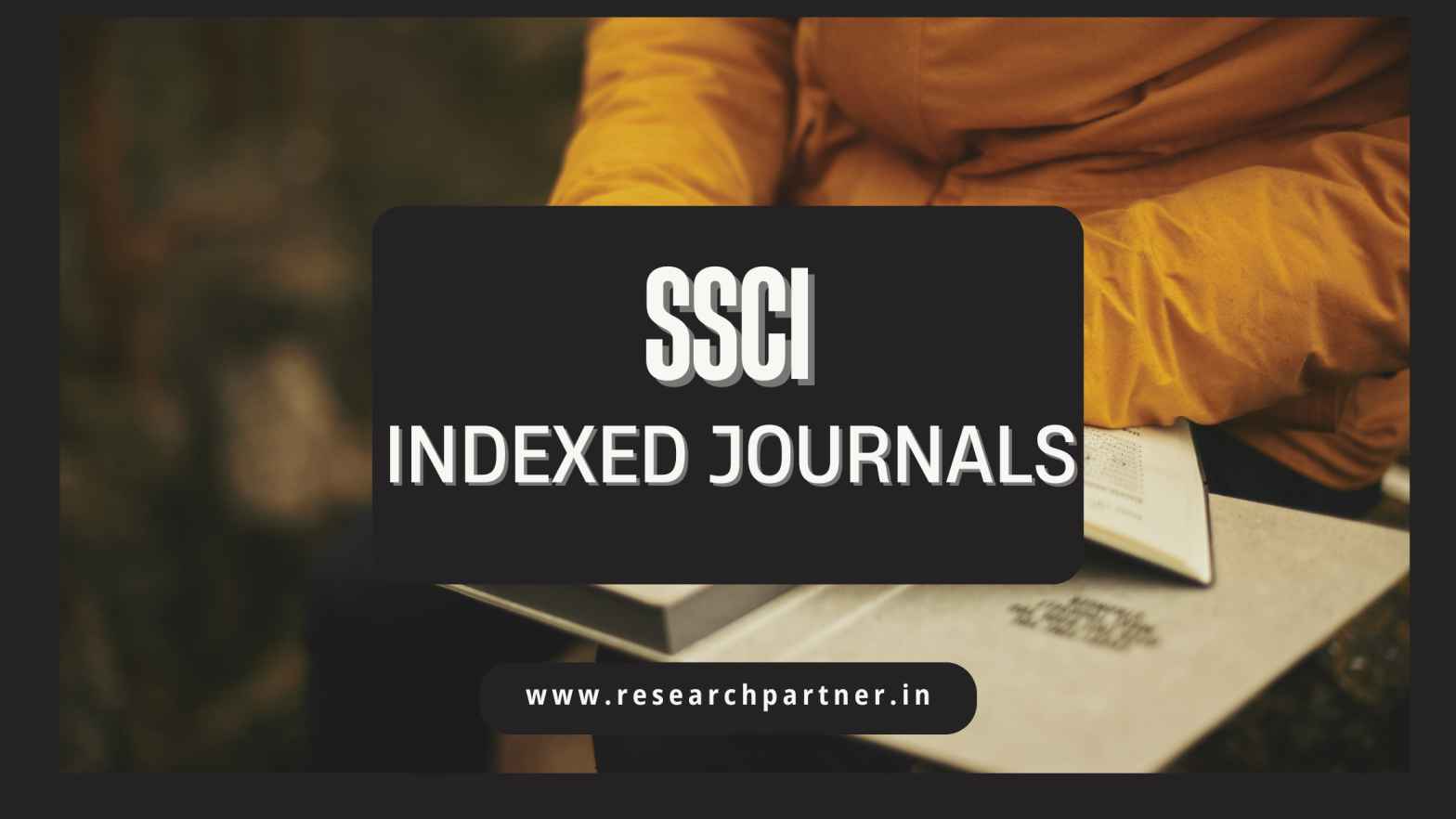


SSCI-indexed journals are a cornerstone of academic excellence in the social sciences
The Social Sciences Citation Index (SSCI) is a prestigious bibliographic database maintained by Clarivate. It is part of the larger Web of Science platform and serves as a benchmark for identifying high-quality research in the field of social sciences. Journals indexed in SSCI are known for their academic rigor, global recognition, and influence. This blog explores what SSCI-indexed journals are, why they matter, and how researchers can benefit from publishing in them.
SSCI-indexed journals undergo a meticulous evaluation process to ensure that only the most impactful and high-quality research is included. These journals primarily cover a wide range of disciplines within the social sciences, including:
The SSCI index focuses on journals that contribute significantly to the advancement of knowledge and theory within the social sciences. Its rigorous selection criteria ensure that only journals with strong editorial policies, peer review systems, and impactful research make it to the list.
SSCI-indexed journals are widely regarded as credible and authoritative sources. They follow a strict peer-review process, ensuring that published research meets high standards. This makes them reliable sources for academics, policymakers, and industry professionals seeking evidence-based insights.
Publishing in SSCI-indexed journals enhances the visibility of researchers and institutions. Articles in these journals are more likely to attract citations, leading to higher h-index scores (a metric for measuring research impact). Academic institutions also value SSCI publications, often considering them essential for promotions, tenure, or funding.
Journals listed in SSCI have impact factors, which reflect the frequency with which articles in a journal are cited. A higher impact factor indicates a greater influence within a field. Researchers often prefer SSCI-indexed journals for their potential to amplify the reach of their work.
The database includes journals from niche areas, fostering interdisciplinary research. With topics ranging from educational reform to behavioral economics, SSCI provides a platform for cross-disciplinary dialogue, enriching the body of knowledge in social sciences.
Academics aiming for promotions or tenure are encouraged to publish in SSCI-indexed journals. Research output in such journals adds weight to an academic’s CV and boosts their reputation.
Since SSCI journals have a high readership, articles published in them are more likely to be cited. This helps researchers build their professional network and enhances the impact of their work.
Some funding agencies prioritize researchers who have published in SSCI-indexed journals. This makes it easier for academics to secure grants and other forms of financial support for future research projects.
Choosing the right journal is crucial. Researchers should ensure that the scope of their paper aligns with the aims of the journal they target. A journal’s impact factor and past issues provide insight into the type of research it publishes.
Each SSCI journal has specific formatting, citation styles, and submission processes. Following these guidelines meticulously increases the chances of acceptance.
SSCI-indexed journals are a cornerstone of academic excellence in the social sciences. They provide a platform for rigorous, high-impact research that influences academic thought and policy-making. For researchers, publishing in these journals offers multiple benefits, including career growth, enhanced visibility, and better funding opportunities. However, the path to publication is challenging, requiring careful planning, perseverance, and a commitment to quality research.
